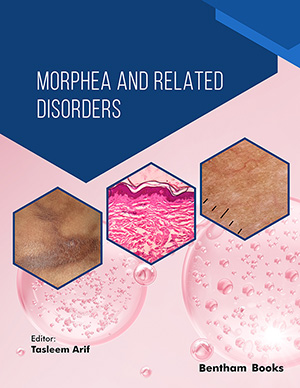Abstract
Recent research suggests that inflammation and immunity may have a role in the etiology of psychotic disorders. There is evidence of proinflammatory activation of the innate immune system and an activation of the T-cells of the adaptive immune system in both schizophrenia and bipolar disorder. Studies of antipsychotic-naïve patients with firstepisode psychosis have found that inflammation is present already at this stage. Some of these abnormalities resolve after the initiation of treatment, suggesting that they are state markers of acute psychosis, but other abnormalities persist. There is also evidence for prenatal infections being involved in the etiology of schizophrenia. Several hypotheses link inflammation and immunity with psychotic disorders. In this review, we focus on hypotheses related to prenatal development, disturbed regulation of neurogenesis, microglial activation, autoimmunity and microbial environment, and consider the potential confounding effects related to stress, childhood adversities, lifestyle and medical comorbidity as well as some methodological limitations. We also review the current evidence for the effectiveness of anti-inflammatory medication in the treatment of psychotic disorders.
Keywords: Autoimmunity, bipolar I disorder, infections, inflammation, microglia, psychotic disorders, schizophrenia.
Infectious Disorders - Drug Targets
Title:Inflammation Theories in Psychotic Disorders: A Critical Review
Volume: 13 Issue: 1
Author(s): Jaana Suvisaari and Outi Mantere
Affiliation:
Keywords: Autoimmunity, bipolar I disorder, infections, inflammation, microglia, psychotic disorders, schizophrenia.
Abstract: Recent research suggests that inflammation and immunity may have a role in the etiology of psychotic disorders. There is evidence of proinflammatory activation of the innate immune system and an activation of the T-cells of the adaptive immune system in both schizophrenia and bipolar disorder. Studies of antipsychotic-naïve patients with firstepisode psychosis have found that inflammation is present already at this stage. Some of these abnormalities resolve after the initiation of treatment, suggesting that they are state markers of acute psychosis, but other abnormalities persist. There is also evidence for prenatal infections being involved in the etiology of schizophrenia. Several hypotheses link inflammation and immunity with psychotic disorders. In this review, we focus on hypotheses related to prenatal development, disturbed regulation of neurogenesis, microglial activation, autoimmunity and microbial environment, and consider the potential confounding effects related to stress, childhood adversities, lifestyle and medical comorbidity as well as some methodological limitations. We also review the current evidence for the effectiveness of anti-inflammatory medication in the treatment of psychotic disorders.
Export Options
About this article
Cite this article as:
Suvisaari Jaana and Mantere Outi, Inflammation Theories in Psychotic Disorders: A Critical Review, Infectious Disorders - Drug Targets 2013; 13 (1) . https://dx.doi.org/10.2174/18715265112129990032
| DOI https://dx.doi.org/10.2174/18715265112129990032 |
Print ISSN 1871-5265 |
| Publisher Name Bentham Science Publisher |
Online ISSN 2212-3989 |
 149
149
- Author Guidelines
- Graphical Abstracts
- Fabricating and Stating False Information
- Research Misconduct
- Post Publication Discussions and Corrections
- Publishing Ethics and Rectitude
- Increase Visibility of Your Article
- Archiving Policies
- Peer Review Workflow
- Order Your Article Before Print
- Promote Your Article
- Manuscript Transfer Facility
- Editorial Policies
- Allegations from Whistleblowers
- Announcements
Related Articles
-
Targeting Cytokines, Chemokines and Adhesion Molecules in Rheumatoid Arthritis
Current Rheumatology Reviews Neuroprotective Properties of Peroxisome Proliferator-Activated Receptor Alpha (PPARα) and its Lipid Ligands
Current Medicinal Chemistry Aryl- and Heteroaryl-Thiosemicarbazone Derivatives and Their Metal Complexes: A Pharmacological Template
Recent Patents on Anti-Cancer Drug Discovery Targeting Strategies in Therapeutic Applications of Toxoplasmosis: Recent Advances in Liposomal Vaccine Delivery Systems
Current Drug Targets Detection of the M. pneumonia in Synovial Fluid of Children with Negative Culture Arthritis: A Cross Sectional Study in Tehran, Iran
Infectious Disorders - Drug Targets Recent Advances in the Development of Antiviral Agents Using Computer-aided Structure Based Approaches
Current Pharmaceutical Design Synopsis on Managment Strategies for Neurodegenerative Disorders: Challenges from Bench to Bedside in Successful Drug Discovery and Development
Current Topics in Medicinal Chemistry Sulfonamides: Antiviral Strategy for Neglected Tropical Disease Virus
Current Organic Chemistry Therapeutic Potential of Citronella Essential Oil: A Review
Current Drug Discovery Technologies STAT3 and Its Phosphorylation are Involved in HIV-1 Tat-Induced Transactivation of Glial Fibrillary Acidic Protein
Current HIV Research Impact of Latent Viral Infections in Mechanically Ventilated Patients
Current Respiratory Medicine Reviews Understanding Helicases as a Means of Virus Control
Current Pharmaceutical Design Targeted and Armed Oncolytic Poxviruses for Cancer: the Lead Example of JX-594
Current Pharmaceutical Biotechnology Cannabinoids and Memory; Animal Studies
Current Drug Targets - CNS & Neurological Disorders Autoimmune Channelopathies of the Nervous System
Current Neuropharmacology Mini-Review on SARS-CoV-2 Infection and Neurological Manifestations: A Perspective
CNS & Neurological Disorders - Drug Targets Mechanisms of Mononuclear Phagocyte Recruitment in Alzheimers Disease
CNS & Neurological Disorders - Drug Targets The Role of VE-cadherin in Blood-brain Barrier Integrity Under Central Nervous System Pathological Conditions
Current Neuropharmacology Combining Oncolytic Virotherapy and Cytotoxic Therapies to Fight Cancer
Current Pharmaceutical Design Beyond Oncolytic Virotherapy: Replication-Competent Retrovirus Vectors for Selective and Stable Transduction of Tumors
Current Gene Therapy


























